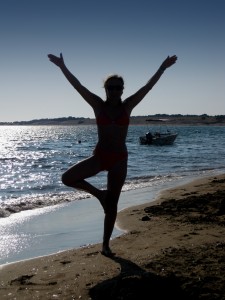Inspiration:
Spirit of Healing, today help me to recognize and encourage some pocket of health.
How Does Our Faith Hold Brokenness?
I have come to believe about human beings that we require food, water, shelter, air, and stories. Something in us needs to speak and to be heard, to forgive and be forgiven, to sing and hear music, to speak our truth and listen for the truths of others. Part of our vocation as human beings, and as religious human beings, is to aid and abet the transmission of beauty and truth.
My husband will say on those occasions when the weight of the world is closing in and the evidence against hope mounts as I read the news, when I start confusing cynicism with pragmatism, and I sigh, “I’m so tired, I’m so discouraged”—he’ll say, in the kindest way: “What kind of entitled grandiosity of privilege is this, to think that you or I or anyone has the right to sever the bright thread of hope, the tradition of dedication to the common good and faith in the people’s power to imagine great change and great risks and then take them; the beautiful, proud history of work for human rights and freedom? We’re only here to pass it on,” he’ll say. “All you have to do is keep the fire burning for a little while, and pass it on. You have no right to put it out.” Not in so many words, but that’s about what Ross will say.
It’s what we say every Sunday. The sacrament of celebration involves memory, as much as it involves forward-looking hope. The church can hold evil and injustice only if it holds the story of resistance, too. It’s not the mourning, but the dancing, that will move our people out of the sanctuary and into the street, into the statehouse, where the life of prayer is embodied.
by Victoria Safford, senior minister of the White Bear Unitarian Universalist Church in Mahtomedi, Minnesota.TO READ MORE


One thing that helps us to remember past successes and to dance with hope is the use of positive language. For example, of course we respond when women’s autonomy is threatened. But better to speak not of “war on women,” but rather of “justice for women,” “women’s autonomy,” or “women’s personhood.” Others of you might think of even better positive terms we can use.